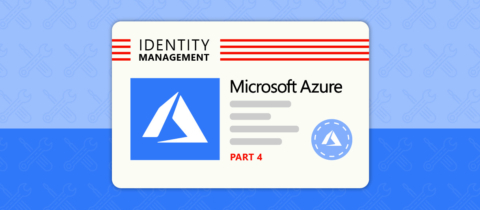Why IT Admins Can’t Think in a Siloed Fashion Anymore

Editor’s note: This post is one in a series of posts about identity management. Check out the others below!
- 8 Common Azure Active Directory Management Mistakes (And How to Avoid Them)
- 9 Things to Consider when Preparing for The SaaS Future
- 11 Steps to Ensuring Your Active Directory Identity Management Works Securely
- 5 Tips to Understanding License Models in the SaaS World
- Why Role-Based Access is Key for Strong Data Security
As more organizations are moving to cloud-based services, the world of access and identity management is becoming even more important for security and content management. In traditional on-premises services, exchange, file shares, SharePoint, chat services were all independent applications managed by specific teams with their own experts.
In Microsoft Office 365, businesses now have access to several applications that used to be separate. There are now converged services based on existing applications. For example, Groups in Office 365 consist of a SharePoint site, an Exchange Distribution List, and Planner. Even Teams are underpinned by Skype and Groups!

Since Office 365 collaboration is based on the convergence of many applications and services that used to be independent of one another and managed separately on premises- this has both benefits and drawbacks.
I. New services are available faster geared for end users
II. New services are still underpinned by licenses and user access management
III. Users and admins will need training on new features – they do not function 100% like they do on premises.
IV. New collaboration solutions mean older ways of collaborating are shifting – email to persistent chat, for example
1. This leads to some generational shifts in how people communicate or how they respond to types of communication. For example, I personally prefer text messages/persistent chat. I tend to think of emails as being formal or for general notices. Many people think of these things differently based on their experiences. So asking yourself and your users about what to use when, such as in this infographic, can help steer users and groups of users to the best collaboration platform for them.
V. Clear need for specific, regular, and accessible IT admins to provide the best service to end users
VI. Working with thought leaders and those who live on the digital edge to evangelize and normalize the change.
VII. The importance of user lifecycle management – turnover is a normal occurrence at organizations of any size. In cloud-based applications, this becomes even more important, because accounts allowed to exist have a per-seat cost, while also allowed to be active beyond their use date increases the risk of data breaches from stale accounts.
Like what you read? Be sure to subscribe to our blog to stay in the fold for all things regarding federal electronic records management, Office 365, SharePoint and more!
Formerly a Solutions Engineer at AvePoint, Bryan worked with enterprises to implement effective business-focused governance, GDPR and regulatory compliance, proactive training and solution deployments for enterprises of all sizes, balancing customizations and available technology to meet business needs.



